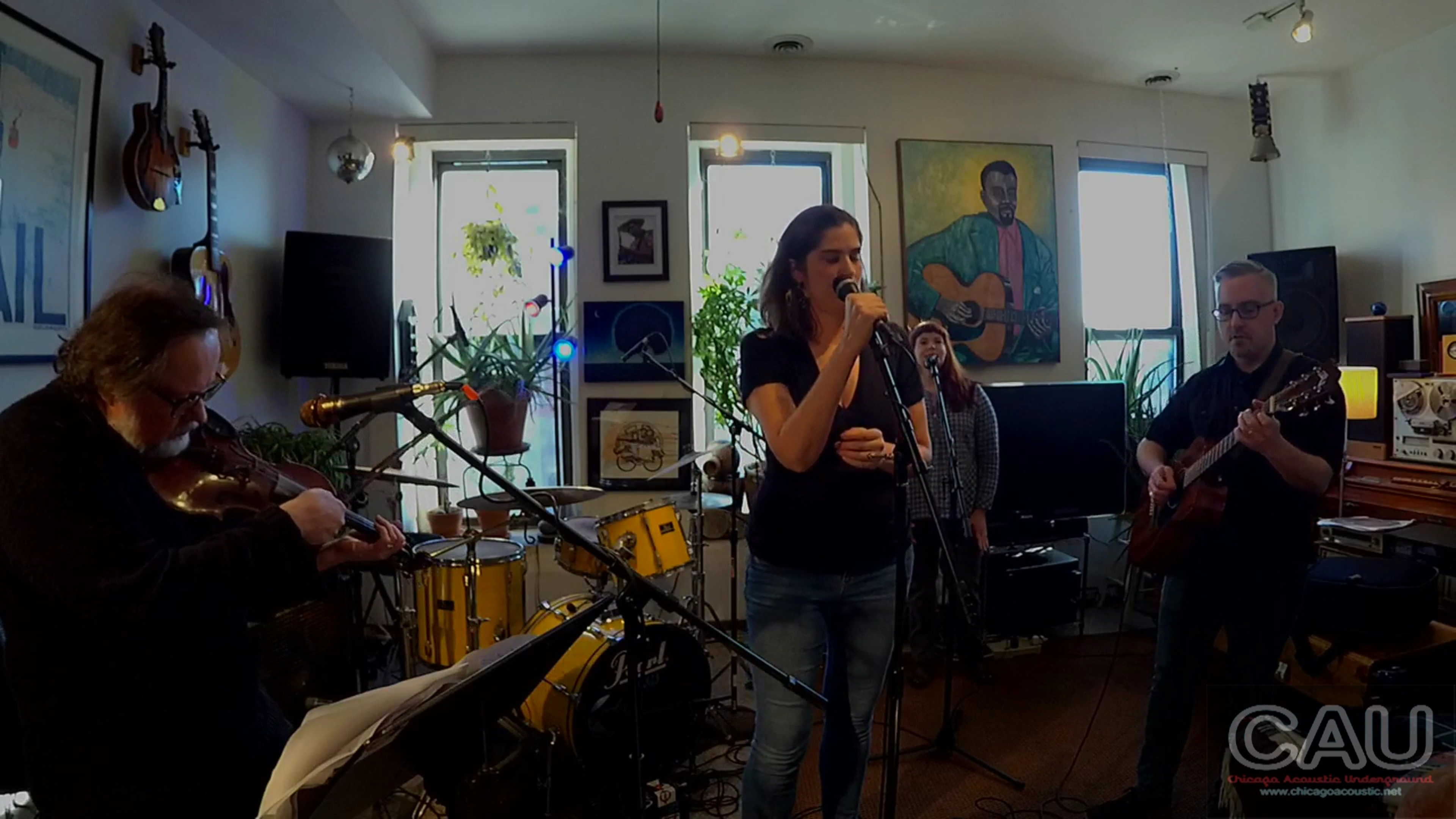The Artist

The Long Farewells w/ Arron Rester and Gabrielle Schafer
The 1910s shaped much of what would eventually define our world today, from the widespread adoption of technological wonders like audio recording, automobiles, and air travel to the horrors of a war that threatened to destroy it. While for many Americans the second decade of the 20th century exists only as a hazy interval between the action of the Old West and the drama of the Roaring Twenties, it was in truth a time overflowing with its own compelling stories. On their new album, Only the Stars—fittingly named after a line from a 1918 Carl Sandburg poem—Chicago’s The Long Farewells look to bring some of those stories to light. In their trademark style of unearthing the beauty in tragedy, singer Gabrielle Schafer and multi-instrumentalist Aaron Rester have created a haunting portrait of America at a time of creative destruction that echoes our own.
Gabrielle Schafer and Aaron Rester first began playing together as members of Chicago alt-country band The Lost Cartographers, who shared bills with the likes of Samantha Crain, Lily & Madeleine, and Jill Andrews of the Everybodyfields, and headlined the local music stage at Taste of Chicago in 2010. Their 2009 album Walk On drew raves that it “would make the Handsome Family proud” and featured a song “good enough to be recorded by Faith, Reba or even Dolly” (Maverick), as well as praise for Schafer’s voice as “shin[ing] through at all points... somewhere between the vocal essence of Natalie Merchant combined with a slight country-twang, reminiscent of Jenny Lewis” (War on Pop). Where that band’s sound drew on instrumental influences as diverse as psychedelia, jazz, and classical, Only the Stars strips the duo’s songs down to Schafer’s unforgettable voice, guitar, and the occasional spare percussion, banjo, or evocative fiddle line courtesy of virtuosic guest star, Sarah Blick of Sugar Still.
The songs on Only the Stars, many of them inspired by historical events and deeply rooted in the band’s Midwestern home, are starkly rendered snapshots of characters both familiar and strange. Leadoff track “Mamah” is told from the perspective of Frank Lloyd Wright as he buries his murdered lover in the Wisconsin hills, while “Up from the South” puts a heartbreakingly personal face to Chicago’s 1919 race riots. “Showmen’s Rest” explores the moments just before the famous Hammond, Indiana circus train disaster of 1918, while “Song for Billy Sunday” is a cheeky rebuke of the pro ballplayer turned temperance crusader who held a revival in downtown Chicago that same year.
Ranging farther afield, “Brown’s Station” finds Rester returning to his childhood home in rural upstate New York, to tell the story of a town destroyed to build what was then the world’s largest dam. “Man from San Francisco,” loosely inspired by Ivan Bunin’s 1916 short story, is a tale of murder and shipwreck in a far-off land, while “Johnny Went off to War” is a tragic narrative of a young woman and the soldier she believes she’ll never see again once he leaves for the Great War.
Not all is despair, though, as the sweetly beautiful “More” and torchy “Midnight Love” provide a glimpse of light in the darkness. “After You’ve Gone,” which closes out the album, was a major hit for chanteuse Marion Harris in 1919. Recorded by hundreds of musicians ever since, the song — like Only the Stars itself — is proof that this most overlooked of decades still has something to teach us a century later.
